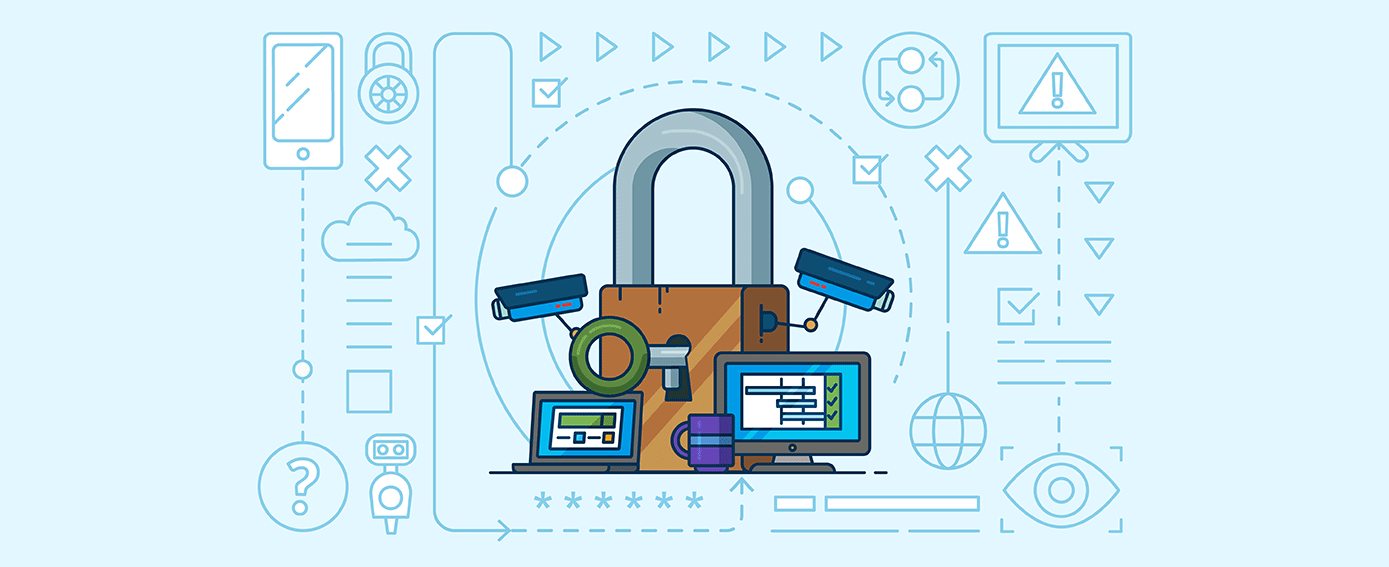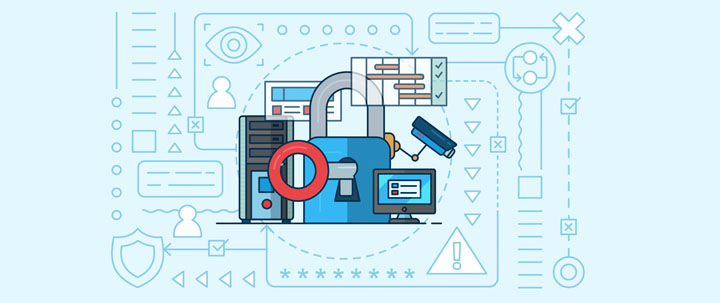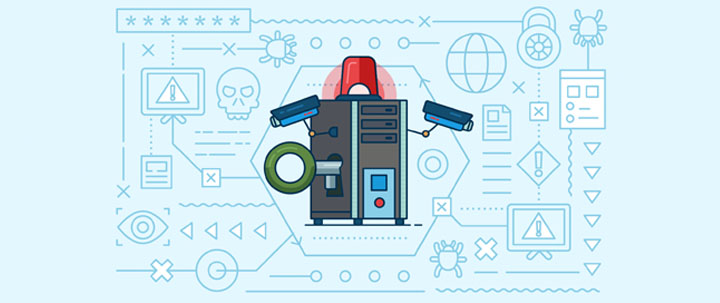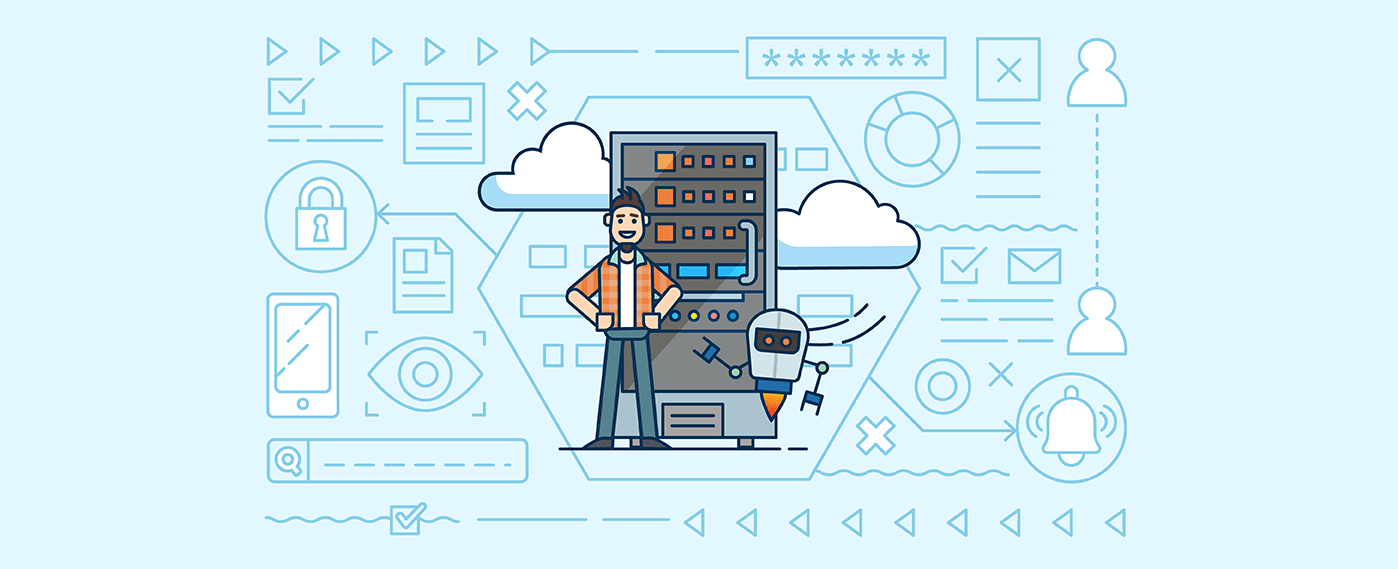In today's digital age, safeguarding customer data is paramount – and for Managed Service Providers (MSPs), cybersecurity is mission-critical to the survival of the businesses they serve. Picture this: a data breach, on average, now costs a staggering five million US dollars per incident. This could spell disaster for many small and medium-sized businesses already navigating a challenging economic landscape with razor-thin margins.
Enter MSPs, the unsung heroes of cybersecurity. Businesses entrust their invaluable information and infrastructure to the capable hands of Managed Service Providers. Why? Because, in a world teeming with sophisticated cyber threats, most lack the resources or expertise to fend off these digital predators. They rely on their trusted IT partners to help construct formidable defenses.
But how can MSPs stay on top of the latest online threats? Let's explore the latest strategies, tactics, and best practices that can make all the difference in keeping your clients safe in an ever-evolving digital landscape.
Why Cybersecurity is so Important to MSPs
For MSPs, providing top-notch cybersecurity has become more than just a feature—it is the core business model. Every other service is irrelevant if you can’t keep a tight lid on client data.
With so much of our lives now spent online, digital crime has increased. Nearly one in three consumers or a household member has had their personal information stolen. Studies show that more than 30% of customers will stop interacting with a business if it is the source of the data leak.
For any company to trust an MSP, they have to know that every interaction will be safe. For the provider, it does more than just protect against liability.
Reputation and Trust
Reputation is everything. Clients put their trust in MSPs to keep their sensitive information and critical systems secure, and any breaches can lead to a loss of trust and a tarnished reputation in a highly competitive market. MSPs prioritizing cybersecurity demonstrate their commitment to protecting their clients, which can result in long-term relationships and referrals. Compliance and Legal Requirements
Compliance and Legal Requirements
With the growing number of data protection regulations such as GDPR, MSPs must ensure they provide cybersecurity measures that meet these requirements. Failure to do so can lead to hefty fines and potential legal issues for the MSP and their clients. MSPs offering robust security solutions can give clients peace of mind, knowing they comply with industry regulations.
Service Differentiation
As the MSP market becomes increasingly saturated, cybersecurity can be used as a key differentiator to set one MSP apart from its competitors. By offering and maintaining class-leading security services, an MSP can demonstrate its commitment to clients' needs and stand out. Properly marketing these cybersecurity services can attract new clients and convince existing ones to upgrade to more comprehensive security packages.
Revenue Growth
By providing high-quality cybersecurity services, MSPs can improve their revenue through client retention, upselling additional security services, and securing new clients. As businesses realize the importance of strong cybersecurity measures, they may be more willing to invest in services that help them mitigate cyber risks. MSPs that offer comprehensive security solutions can tap into this growing demand and see a positive impact on their bottom line.
How to Keep Your Clients Safe
Ensuring the safety of your clients' data and IT infrastructure is the most critical aspect of your role as an MSP. Strengthening cybersecurity measures and adopting best practices are crucial to mitigating the risks associated with cyber threats.
Here are ten tips that MSPs can implement to keep their clients safe from cyberattacks:
1. REGULARLY ASSESS AND UPDATE SECURITY MEASURES
Consistently evaluate and update security measures based on evolving threats and best practices. Keep up with industry developments, emerging vulnerabilities, and new technologies that could enhance your clients' security postures.
2. EMPLOY A MULTI-LAYERED SECURITY STRATEGY
Implement a multi-layered approach to security that combines various solutions such as firewalls, antivirus software, intrusion detection systems, and encryption. This makes it harder for cybercriminals to breach clients' networks and access sensitive data.
3. PROMOTE SECURITY AWARENESS AND EDUCATION
Regularly educate your clients and employees on cybersecurity best practices and the latest threats. Security awareness training can help them recognize potential risks, avoid common pitfalls, and contribute to a robust security culture within their organizations.
4. IMPLEMENT STRONG IDENTITY AND ACCESS MANAGEMENT
Ensure strong identity and access management by implementing policies and procedures restricting unauthorized access to sensitive data. Utilize multi-factor authentication, role-based access controls, and regular review of user permissions to minimize the risk of unauthorized access or the abuse of privileges.
5. REGULARLY MONITOR AND ANALYZE NETWORK ACTIVITY
Monitor and analyze your clients' network activity to detect and respond to unusual behavior or potential threats. Employing a security information and event management (SIEM) system can help automate this process, allowing you to identify and mitigate any potential risks quickly.
6. SCHEDULE CONSISTENT DATA BACKUPS
Protect your clients' data by scheduling regular and secure backups. In the event of a cyberattack, such as ransomware, having reliable backups can help your clients quickly recover their data and minimize downtime. 7. ENCOURAGE STRONG PASSWORD POLICIES
7. ENCOURAGE STRONG PASSWORD POLICIES
Implement and enforce strong password policies for all users, devices, and systems. Encourage using unique, complex, and lengthy passwords, and recommend frequent password updates to maintain secure network and data access.
8. PERFORM REGULAR VULNERABILITY ASSESSMENTS AND PENETRATION TESTING
Regularly assess your clients' networks for vulnerabilities and conduct penetration tests to identify potential security weaknesses. Performing these assessments and tests will help you proactively address and remediate any discovered vulnerabilities before they can be exploited.
9. KEEP SOFTWARE AND SYSTEMS UPDATED
Ensure that all software, operating systems, and firmware are up-to-date with the latest security patches. Regular updates can help protect against known vulnerabilities and prevent cybercriminals from exploiting outdated systems and software.
10. DEVELOP INCIDENT RESPONSE PLANS
Develop and implement clear and comprehensive incident response plans for your clients. A well-defined response plan can help minimize damage and speed up recovery in a cybersecurity breach or attack. Regularly review and update these plans to ensure they stay effective and relevant.
Final Thoughts
There’s one final tip that can’t be overlooked. MSPs must ensure they offer tools and processes similarly backed by strong security measures if they outsource specific tasks.
SherpaDesk offers a comprehensive, secure platform for MSPs to manage their help desk, invoicing, and project management tasks. With a focus on security, SherpaDesk ensures that your clients' data and operations are protected.
By prioritizing cybersecurity and partnering with secure service providers, MSPs can continue to thrive, build trust with their clients, and successfully navigate the challenges of an increasingly interconnected digital world.


.png)
%201.png?width=559&height=559&name=close-up-women-working-with-devices%20(1)%201.png)








